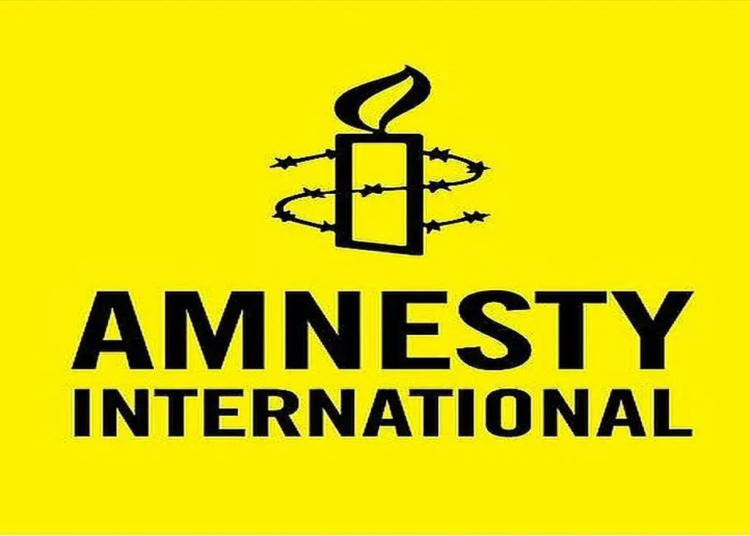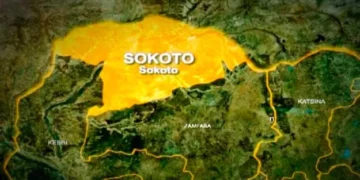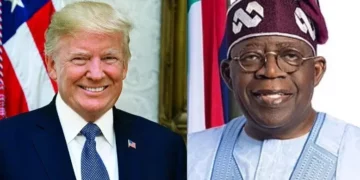Responding to denials by the Nigeria Police over extra-judicial killings during the #Endbadgovernance protests, Amnesty International (AI) has declared that it has evidence that 24 people were killed and over 1,200, including minors, were detained, while others were tortured.
Making the presentation at an international press conference in Kano yesterday, the country director of the Amnesty International, Isah Sanusi, also refuted the claims by the police that those killed during the protests were killed by unknown gunmen.
He further condemned the violent crackdown on the protesters, calling on the government to investigate and prosecute those involved in it.
“Nigerian police used excessive force against protesters during the nationwide #Endbadgovernance demonstrations between 1-10 August, killing at least 24 people in the states of: Borno, Kaduna, Kano, Katsina, Jigawa and Niger, Amnesty International said in a briefing published today.
“Bloody August: Nigerian Government’s Violent Crackdown on #Endbadgovernance Protests, documents the violent crackdown on peaceful protests against rampant corruption and economic hardship. Those killed included 20 young people, an older person and two children.
“In all cases, the victims were shot by the police, firing live ammunition at close range often at the head or torso, suggesting that officers were shooting to kill.
“Two survivors suffered injuries after being shot by police in the arm and legs, others were suffocated by the indiscriminate use of tear gas.
“People in Nigeria witnessed unbelievable lawlessness as security personnel fired live ammunition at protesters. The death toll could be higher than 24 because of the authorities’ apparent desperate efforts to cover up the atrocities. Peaceful protest over government policies is now a matter of life and death in Nigeria,” said Isa Sanusi, Director of Amnesty International Nigeria.
The Amnesty International also called on the Nigerian government to hold police and other security agencies responsible for the violence unleashed on unarmed protesters.
“The Nigerian authorities must hold the police and other security agencies to account for unleashing deadly force on people who did not constitute an imminent threat to lives.
“It is shocking that police have engaged in flagrant denials of wrongdoing despite public evidence to the contrary, and this speaks to their utter disregard for the sanctity of human lives.
“President Bola Tinubu and his government must conduct prompt, thorough, independent, impartial, transparent and effective investigations into the allegations of human rights violations during the #Endbadgovernance protests, and ensure that those suspected to be responsible are identified and brought to justice in fair trials. Nigerian authorities must ensure access to justice and effective remedies for victims and their families,” he added.
Giving a breakdown of the death toll, he said in Kano, 12 people were killed at Rijiyar Lemo and Kofar Nasarawa. In Jigawa State, three people were killed at Hadejia, while one person was killed at Kofar Sauri, Katsina State.
In Kaduna State, a minor was killed by a solider in Zaria while police killed one person in Kaduna. In Maiduguri, three people were killed at A.A. Kime Filling Station at Bolori Junction. In Niger State, at least, three people were killed along the Abuja-Kaduna Expressway.
Between 12-17 August 2024, Amnesty International carried out field research in Kano, Katsina, and Jigawa states. Evidence gathered includes videos and photographs, as well as accounts from eyewitnesses, medical workers and victims’ relatives, friends, and acquaintances on the ground.
“Eyewitnesses told Amnesty International in Kano, Dutse, Katsina, and Minna that the protests were largely peaceful when they began in the morning of 1 August, but the mood abruptly changed when police attacked the protesters by firing live ammunition and tear gas. The excessive use of force by the police against protesters contravenes international human rights standards, including the United Nations Basic Principles on the Use of Force and Firearms by Law Enforcement Officials.”
More so, Amnesty International said, those who expressed support for the protests on social media were attacked, and many were arbitrarily arrested either by the police or the Department of State Services (DSS).
One Khalid Aminu, an engineer, was arrested by the DSS in Kaduna during the protest. He told Amnesty International that he was tortured for over 60 days and the torture started right from the point of arrest. The DSS operatives beat him and other protesters with sticks and iron cables. They poured water on him. He is yet to fully recover from these atrocities.”
Michael Adaramoye (widely known as Lenin) was detained for two months for being part of the protest in Abuja.
Despite overwhelming evidence, including eyewitness accounts, videos, medical records, testimonies of the parents of victims and survivors, and photographs, the police have consistently denied involvement in the killings, dismissing them as “fake news” or attributing them to “unknown gunmen.”
“The Nigeria Police Force’s denial of the killings of protesters is a disturbing trend that undermines trust, perpetuates impunity, and exacerbates the cycle of violence. It also adds to the agony of the families whose loved ones were killed,” Isa Sanusi stated.
“The brutal crackdown on the #Endbadgovernance protests is a clear manifestation of Nigerian authorities’ failure to respect and ensure the rights to freedom of expression and peaceful assembly.
“From restricting protesters to certain places in Abuja, Lagos and Port Harcourt to attacks on journalists, the Nigerian police once again shows that nothing has changed about its disregard for human rights and the rule of law,” he said.





